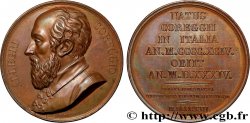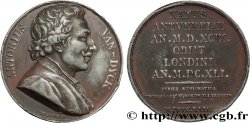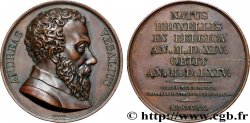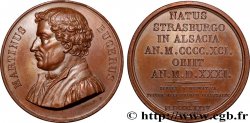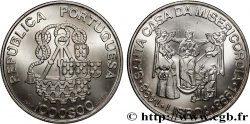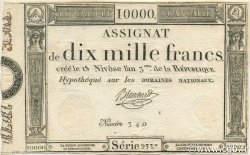100.00 €
Количество
Добавить в корзину

Тип Médaille, John Gaspar Lavater
Дата: 1818
Монетный двор / Город: Suisse
Металл: bronze
Диаметр: 40,5 mm
Ориентация осей монеты: 12 h.
Вес: 38,23 g.
Век: lisse
Пуансон: sans poinçon
Комментарии о состоянии
Patine marron hétérogène, une légère usure sur certains reliefs
Лицевая сторона
Аверс: легенда: JOH. GASPARUS - LAVATER.
Аверс: описание: Buste à gauche de John Gaspar Lavater, signé : LEVEQUE.
Обратная сторона
Реверс: легенда: NATUS / TURICI / HELVETIORUM / AN. M. DCC. XLI. / OBIIT / AN. M. DCCC. I. // SERIES NUMISMATICA / UNIVERSALIS VIRORUM ILLUSTRIUM / M.DCC.XVIII.
Реверс: Описание: Légende en 9 lignes horizontales.
Комментарий
Médaille signée LEVEQUE au droit et PARISIIS DURANT EDIDT au revers, faisant partie de la Série métallique des grands hommes illustres.
Johann Kaspar Lavater ou Gaspard Lavater (15 novembre 1741 à Zurich - 4 janvier 1801 à Zurich) était un théologien suisse et écrivain de langue allemande. Il s'est surtout fait connaître pour son ouvrage sur la physiognomonie : L’Art de connaître les hommes par la physionomie (1775-1778), Paris.
Goethe, dont il fut l'ami, eut d'abord pour son œuvre de la sympathie bien qu'il ne partageât pas son adhésion aveugle à la foi chrétienne. Liés dans les années 1770, en dépit de divergences déjà sérieuses, Lavater et Goethe ne cessèrent de s'éloigner l'un de l'autre à partir du moment où Goethe porta sur le Pontius Pilatus de Lavater un jugement sévère, accusant celui-ci de n'avoir pas assez réfléchi sur la Bible et de s'en servir sans rigueur. Plus profondément, l'irrationalisme de Lavater ne pouvait qu'indisposer Goethe, respectueux de la foi mais soucieux de ne jamais renoncer aux droits de la raison.
Lavater fut membre de la franc-maçonnerie..
Medal signed LEVEQUE on the obverse and PARISIIS DURANT EDIDT on the reverse, part of the Metallic Series of Great Illustrious Men. Johann Kaspar Lavater or Gaspard Lavater (November 15, 1741 in Zurich - January 4, 1801 in Zurich) was a Swiss theologian and German-language writer. He is best known for his work on physiognomy: The Art of Knowing Men by Physiognomy (1775-1778), Paris. Goethe, with whom he was a friend, initially had sympathy for his work, although he did not share his blind adherence to the Christian faith. Having become friends in the 1770s, despite already serious differences, Lavater and Goethe continued to drift apart from the moment Goethe harshly judged Lavater's Pontius Pilatus, accusing him of not having reflected enough on the Bible and of using it without rigor. More profoundly, Lavater's irrationalism could only upset Goethe, who respected the faith but was careful never to renounce the rights of reason. Lavater was a member of Freemasonry.
Johann Kaspar Lavater ou Gaspard Lavater (15 novembre 1741 à Zurich - 4 janvier 1801 à Zurich) était un théologien suisse et écrivain de langue allemande. Il s'est surtout fait connaître pour son ouvrage sur la physiognomonie : L’Art de connaître les hommes par la physionomie (1775-1778), Paris.
Goethe, dont il fut l'ami, eut d'abord pour son œuvre de la sympathie bien qu'il ne partageât pas son adhésion aveugle à la foi chrétienne. Liés dans les années 1770, en dépit de divergences déjà sérieuses, Lavater et Goethe ne cessèrent de s'éloigner l'un de l'autre à partir du moment où Goethe porta sur le Pontius Pilatus de Lavater un jugement sévère, accusant celui-ci de n'avoir pas assez réfléchi sur la Bible et de s'en servir sans rigueur. Plus profondément, l'irrationalisme de Lavater ne pouvait qu'indisposer Goethe, respectueux de la foi mais soucieux de ne jamais renoncer aux droits de la raison.
Lavater fut membre de la franc-maçonnerie..
Medal signed LEVEQUE on the obverse and PARISIIS DURANT EDIDT on the reverse, part of the Metallic Series of Great Illustrious Men. Johann Kaspar Lavater or Gaspard Lavater (November 15, 1741 in Zurich - January 4, 1801 in Zurich) was a Swiss theologian and German-language writer. He is best known for his work on physiognomy: The Art of Knowing Men by Physiognomy (1775-1778), Paris. Goethe, with whom he was a friend, initially had sympathy for his work, although he did not share his blind adherence to the Christian faith. Having become friends in the 1770s, despite already serious differences, Lavater and Goethe continued to drift apart from the moment Goethe harshly judged Lavater's Pontius Pilatus, accusing him of not having reflected enough on the Bible and of using it without rigor. More profoundly, Lavater's irrationalism could only upset Goethe, who respected the faith but was careful never to renounce the rights of reason. Lavater was a member of Freemasonry.







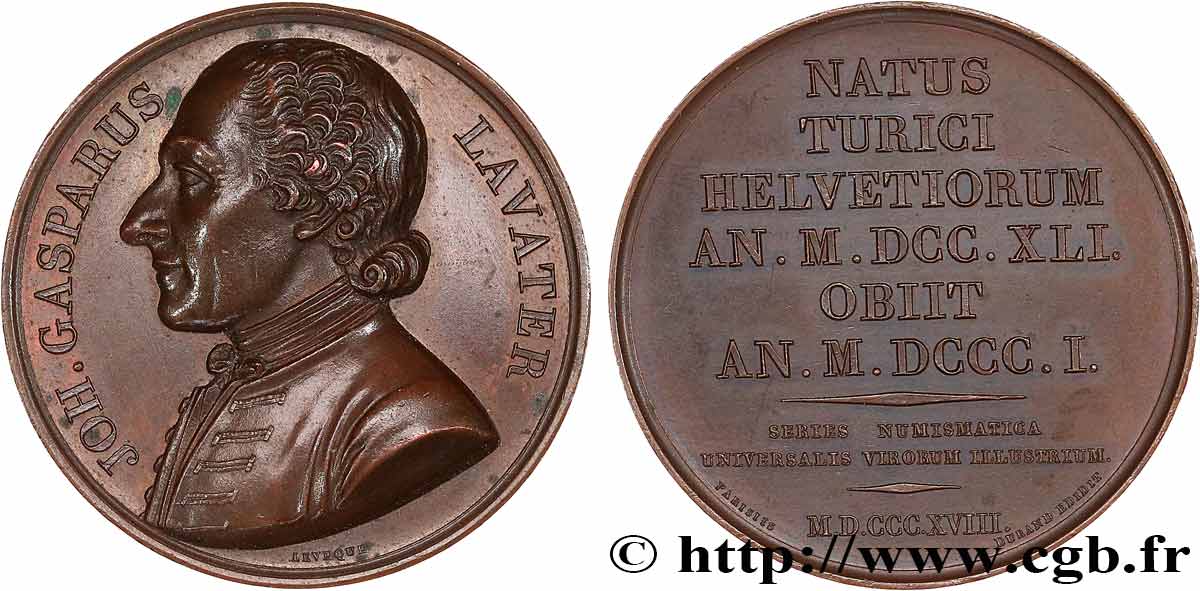
 Cообщить об ошибке
Cообщить об ошибке Распечатать страницу
Распечатать страницу Отправить мой выбор
Отправить мой выбор Задать вопрос
Задать вопрос Consign / sell
Consign / sell
 Информация
Информация